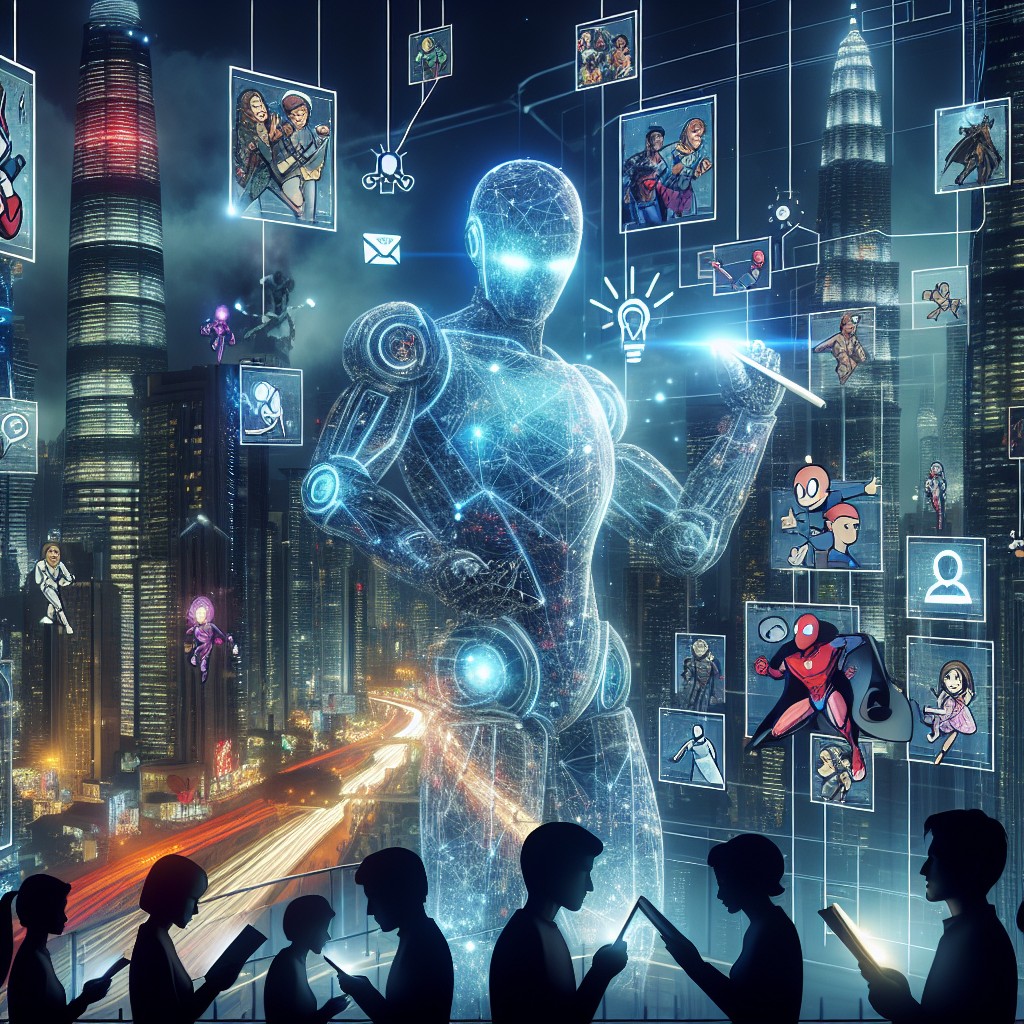The Future of AI in Comics: From Virtual Comic Book Artists to AI-generated Storylines
Artificial intelligence (AI) has already made significant strides in various industries, from healthcare to finance to entertainment. One area where AI is poised to make a big impact is in the world of comics. With its ability to perform complex tasks and simulate human-like creativity, AI has the potential to revolutionize the way comics are created, distributed, and consumed.
One of the most exciting applications of AI in comics is the development of virtual comic book artists. These AI-powered tools are capable of generating stunning artwork that is indistinguishable from that created by human artists. By inputting basic instructions and parameters, users can generate custom comics in a matter of minutes, saving time and resources for creators and publishers.
One such tool is Runway ML, a platform that uses machine learning algorithms to assist artists in creating digital art. By leveraging AI, artists can quickly generate backgrounds, characters, and other elements of their comics, allowing them to focus on storytelling rather than technical details.
In addition to virtual artists, AI is also being used to create dynamic storylines for comics. By analyzing popular comic book tropes and story structures, AI algorithms can generate compelling narratives that resonate with readers. This technology has the potential to revolutionize the storytelling process, allowing creators to experiment with new ideas and formats that were previously inaccessible.
For example, the AI-powered platform Botnik has been used to create a “Harry Potter” chapter generated entirely by AI. By analyzing the language and structure of the original books, the AI was able to produce a new chapter that captured the essence of J.K. Rowling’s writing style. This demonstrates the potential for AI to assist creators in developing new and engaging storylines for comics.
Another area where AI is making waves in the world of comics is in the distribution and marketing of digital comics. By analyzing user data and preferences, AI algorithms can recommend personalized comic book recommendations to readers, increasing engagement and driving sales. This technology has the potential to transform the way comics are consumed, making it easier for readers to discover new titles and creators.
Despite the exciting potential of AI in comics, there are also concerns about the impact of this technology on the industry. Some critics worry that AI-generated content may lack the human touch and creativity that is essential to the art of storytelling. Others raise concerns about the potential for AI to replace human artists and writers, leading to job loss and a homogenization of creative voices.
However, proponents of AI in comics argue that this technology has the potential to democratize the industry, making it easier for new and diverse voices to be heard. By providing tools and resources to aspiring creators, AI can empower a new generation of artists and writers to share their stories with the world.
In conclusion, the future of AI in comics is bright and full of possibilities. From virtual comic book artists to AI-generated storylines, this technology has the potential to revolutionize the way comics are created, distributed, and consumed. By harnessing the power of AI, creators can experiment with new ideas and formats, reaching audiences in innovative and engaging ways. While there are concerns about the impact of AI on the industry, the potential benefits far outweigh the risks. As AI continues to evolve and improve, we can expect to see even more exciting developments in the world of comics in the years to come.
FAQs:
Q: Will AI replace human comic book artists and writers?
A: While AI has the potential to assist and augment the work of human creators, it is unlikely to completely replace them. Human creativity and storytelling abilities are unique and difficult to replicate with AI algorithms. Instead, AI is more likely to be used as a tool to help artists and writers in their creative process.
Q: Can AI-generated comics be as engaging as those created by humans?
A: AI-generated comics have the potential to be just as engaging as those created by humans. By analyzing popular storytelling tropes and structures, AI algorithms can generate compelling narratives that resonate with readers. While there may be some differences in style and tone, AI-generated comics have the potential to capture the essence of human creativity.
Q: How can AI benefit the comic book industry?
A: AI can benefit the comic book industry in a variety of ways. By providing virtual comic book artists and AI-generated storylines, AI can help creators save time and resources, allowing them to focus on storytelling rather than technical details. AI algorithms can also assist in the distribution and marketing of comics, helping readers discover new titles and creators. Overall, AI has the potential to revolutionize the way comics are created, distributed, and consumed.

